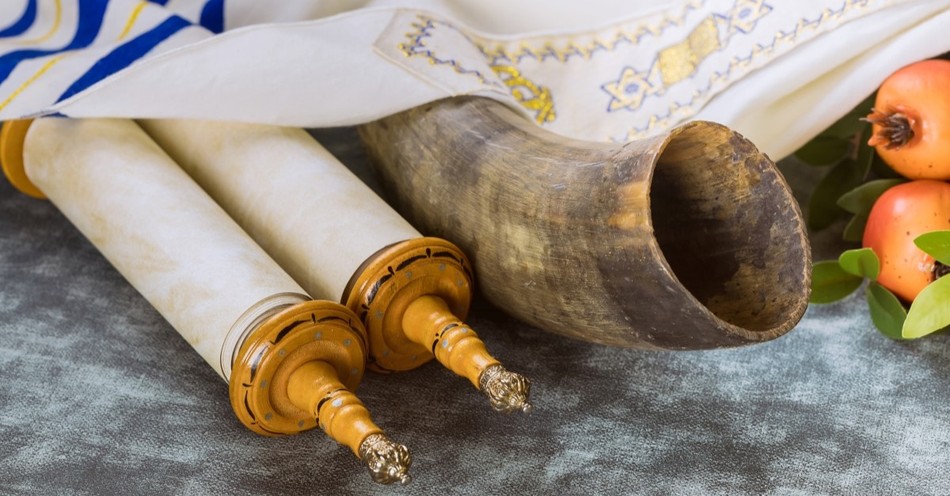The Day of Atonement, also known as Yom Kippur, is the holiest day in Judaism, offering deep theological significance to Christians as well, symbolizing the ultimate sacrifice of Jesus Christ for humanity's sins, and occurring on the 10th day of Tishrei, the seventh month of the Hebrew calendar, falling in late September or early October. Yom Kippur concludes the Ten Days of Repentance that begin with Rosh Hashanah, the Jewish New Year. It is a day dedicated to prayer, fasting, and repentance, offering individuals the opportunity to reflect on their actions over the past year, seek forgiveness from God, and make amends with those they have wronged. The ultimate aim of the Day of Atonement is to purify the soul and renew one's relationship with God.
The Day of Atonement is a vital event in the calendar of holy days that God gave to the Israelites. But what was the atonement for?
The Day of Atonement: Table of Contents
Where Does Scripture Mention the Day of Atonement?
There are several mentions of the Day of Atonement in the Bible. Many of the references are found in Leviticus 16 and Leviticus 23. Atonement is where humanity is reconciled with God from sin. Jesus Christ atoned for our sins on the cross. He became a scapegoat for us. You must confess and believe in Jesus to benefit from all that salvation offers. A scapegoat bears the blame for others or suffers in their place.
God gave Moses instructions in Leviticus 16 on how the children of Israel would have their sins atoned. He instructed Aaron, Moses’ brother, who was the chief priest. In Leviticus 16:29-30, God declares that atonement is a statute forever. Here it takes place in the seventh month on the tenth day. People were to fast, repent of their sins, and not work. It was on the Sabbath when no work was taking place. They were told to humble themselves, which usually included fasting and prayer.
The priest had to make atonement for the people. You will find in the Old Testament that anytime when God speaks, He is specific. He instructs Moses on what to tell Aaron to do. At this time in scripture, Aarons’ two sons had died. As explained in Leviticus 10, Nadab and Abihu offered strange fire before the Lord, which he told them not to do. Both of them took their censers and put fire and then incense. The Lord sent fire and consumed them.
The text does not give the exact sin. Afterward, the Lord told Moses to tell Aaron that He would be sanctified in those who come near Him. The Lord will be honored and glorified. God is careful to lay out how He wants everything done to the letter. To not follow His instructions is deadly when coming into His presence.
Moses then told Aaron in Leviticus 10:3 that the Lord will be sanctified in them that come unto Him, and He will be glorified before all the people. Aaron and his other two sons were told not to grieve lest the wrath of the Lord come upon them (Leviticus 10:6-7). The Lord told them, “Do not drink wine nor strong drink, thou, nor thy sons with thee, when ye go into the tabernacle of the congregation, lest ye die; it shall be a statue forever throughout your generations” (Leviticus 10:9).
Does the Year of Jubilee Occur During the Day of Atonement?
The Year of Jubilee, when it comes every 50 years, occurs on the Day of Atonement. On this day, every 50 years, God proclaimed deliverance from bondage. Debts would be canceled. The trumpet or ram’s horn would sound (see Leviticus 25:9-10). Land previously leased to someone would be restored—a reminder that the land belongs to God. Loans would be made without calculating the years left to repay them (Deuteronomy 15:10).
Jubilee is also a religious holiday within the Roman Catholic Church calendar. It is called Holy Year and occurs once every 25 years. During this time, confessors have their reprimands lifted. Some popes make specific declarations for what should happen during this time—Pope Francis declared in 2016 that parishioners should practice acts of mercy.
What Did the Israelites Do on the Day of Atonement?
In Leviticus 23:23-43, God gives Moses specifics about how to relay the Day of Atonement to the children of Israel. Here are a few of the things God instructed them to do:
- They were not to work, or they would be cut off from among their people.
- On the fifteenth day of the seventh month, there would be a feast of tabernacles, lasting for seven days. During this time, an offering is made by fire unto the Lord.
- The eighth day is a holy convocation.
- The children of Israel were also instructed to live in booths for seven days. The booths were temporary shelters made of tree branches and palm leaves (The KJV Study Bible, Barbour Publishing 2011).
Priests had specific duties on the Day of Atonement. God told Moses to tell Aaron specifically what to do. He had to bring a young bullock for a sin offering and a ram for a burnt offering. Aaron had to put on the right attire as specified in Leviticus 16:4. For the congregation, Aaron had to get two kids of the goats for a sin offering and one ram for a burnt offering.
In Leviticus 16:21, we see Aaron confessing the sins of the children of Israel over the scapegoat, as referenced in 16:10. The goat is then released into a land that the children of Israel do not inhabit. In this chapter, God is specific about what must be done. To not follow instructions or disregard God’s commands could mean death.
Atonement was made for not only the children of Israel and the high priest but also for the tabernacle or place of worship (Leviticus 16:33). God was also specific by making this an everlasting statute for the children of Israel.
After the Day of Atonement was announced, God explained how the people were to conduct themselves. Read in-depth in Leviticus 18-20. The Lord also provided instructions on how priests had to conduct themselves in Leviticus 21-22.
When Is the Day of Atonement Celebrated Today?
Yom Kippur and Rosh Hashana are modern Judaism’s high holy days. Yom Kippur ends the 10 days of repentance that begins with Rosh Hashana. During Yom Kippur, individuals spend time on purification, forgiving others, and repenting of sins. Rosh Hashana is also known as a day of remembrance and begins the Jewish new year. Individuals reflect on their relationship with God.
For Christians, atonement was made for our sins when Jesus died on the cross. It is not necessary for a high priest on this earth to present himself and sacrifice for our sins yearly, as in the Old Testament. Jesus’ sacrifice on the cross constantly reminds us that our sins have been atoned for. We just have to receive this. He became the Lamb for us.
Hebrews 9:24-26 paints a picture of Christ’s sacrifice. “Christ came as a high priest by a greater and more perfect tabernacle, not made with hands” (Hebrews 9:11). Christ exchanged His blood for previous sacrifices of bulls and goats. Hebrews nine continues to say that Jesus is the mediator of the New Testament. “For Christ is not entered into the holy places made with hands, which are the figures of the true, but into heaven itself, now to appear in the presence of God for us” (Hebrews 9:24). If you want a full picture of what the author is saying, read Hebrews 9-10.
Jesus dying on the cross settled so much for us. The blood of God’s Son made flesh is better than sacrificing animals. After Jesus sacrificed for our sins, He sat down on the right hand of God.
We as Christians are to repent daily for our sins and often reflect on our relationship with God through Jesus Christ. Christians should read the Bible to know what God expects of us in this walk and all our benefits from Jesus’ sacrifice.
What Can We Learn from the Day of Atonement?
We should appreciate the fact we are sanctified through the offering of the body of Jesus Christ. (Hebrews 10:10). In the Old Testament, priests had to come before God yearly for the congregation’s sins. The Blood of Jesus settled that for us. God sees us through the Blood of Jesus Christ. It is a finished work.
We can have respect for the Jewish faith and others who still hold the Day of Atonement as listed in the Old Testament. For one thing, it encourages a humble spirit before God, encouraging people to meditate on their sins. Humility is always a good trait when relating to God. The Bible says to humble yourself before the mighty hand of God so that He may exalt you in due season (1 Peter 5:6). Not many people want to humble themselves before the Lord. Humility is a good trait. During the Day of Atonement, you are to be humble.
Further Reading:
What Is the Meaning and Purpose of the Sabbath Day?
What Is Rosh Hashanah and How Is it Celebrated?
Photo Credit: Getty Images/photovs

This article is part of our Bible resource for understanding the significance and meaning of biblical phrases and ideas. Here are our most popular Bible articles to grow in your knowledge of God's Word:
Promises of God in the Bible
Is "This Too Shall Pass" in the Bible?
What Was the Ark of the Covenant?
Top 10 Bible Stories for Kids
“Iron Sharpens Iron” in Proverbs 27:17
"Fearfully and Wonderfully Made" in Psalm 139
“Be Still and Know That I am God” in Psalm 46:10
"No Weapon Formed Against Me Shall Prosper" - Isaiah 54:17



